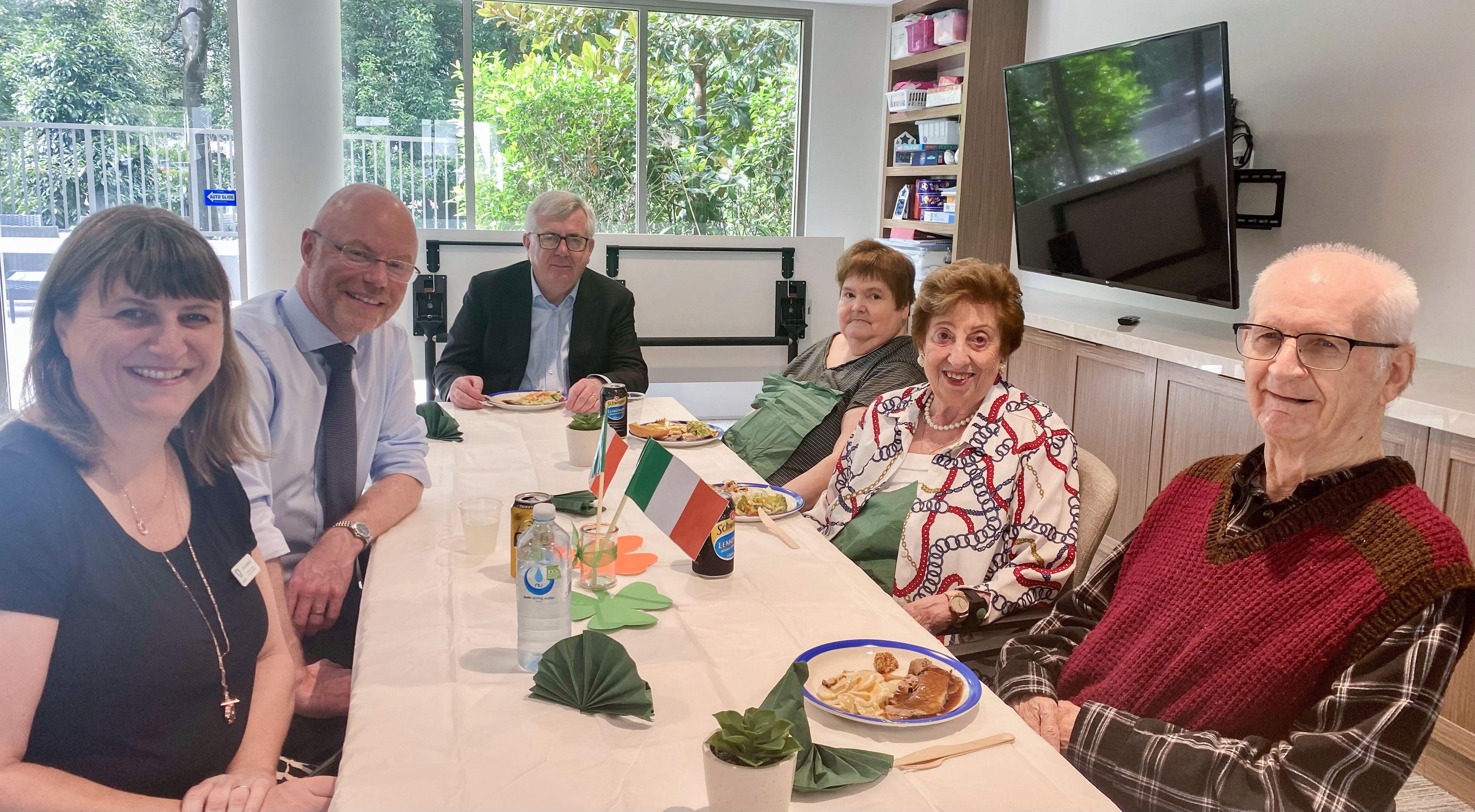University of Sydney partnership to help those living with dementia

Known as the I-CHARP project (Interdisciplinary Care Home-based Reablement Program), this implementation research study is being funded by the National Health and Medical Research Council.
I-CHARP program
The reablement program teams experienced occupational therapists and nurses to develop holistic and tailored care plans with and for residents based on their individual needs and goals.
Researchers hope the new approach can ultimately be used as routine practice across aged care homes in Australia. Calvary’s Senior Medical Advisory for Aged Care, Dr Tony Hobbs, said the program worked with residents’ families and care teams to improve residents’ independence and overall health and wellbeing.
“Many older people in aged care homes live with dementia or a mild cognitive impairment, and there is a perception that there is nothing that can be done to support them to maintain their independence,” said Dr Hobbs.
“Previous studies have shown that simply isn’t the case, and this new approach is designed to help residents continue to participate in activities and maintain their independence and function for as long we can.”
Reablement through activity
Currently, more than 400,000 Australians are estimated to be living with dementia, and with that figure predicted to more than double to 849,000 by 2058, Dr Hobbs said finding ways to help enable people to live their best lives was an important focus.
“With this new approach, we are looking at things like mobility, language, activity and self-care,” he said. “The difference with this approach is getting the occupational therapist involved right at the beginning, bringing a different set of eyes and working with the nurse to do a very comprehensive and holistic assessment.”
Professor Yun-Hee Jeon is the project lead and the Susan and Isaac Wakil Professor of Healthy Ageing at the University of Sydney.
”The I-CHARP model builds on the Interdisciplinary Home-based Reablement Program (I-HARP) which successfully helped improve daily independence and slowed further decline among people with mild dementia living in the community.”
“The I-CHARP model is unique in that it provides a timely opportunity for interdisciplinary teamwork between registered nurses and allied health professionals in aged care homes. The study is about working in collaboration with aged care partners, co-designing and implementing a model of care that can work in the real-world setting for residents in aged care homes and for providers.
“Reablement is centered on the idea that health and wellbeing of older people, with or without dementia, can be maximised through helping them participate in their daily physical, social and community activities.
“We’ve seen how it can work in other settings. We had many participants in our previous studies who told us how wonderful it was to have that sort of positive outlook rather than saying well ‘you can’t do this and you can’t do that’ all the time,” Professor Jeon said.
Calvary aged care
Calvary is one of two aged care providers partnering in the study across 16 homes. Eligible residents in half of the homes will participate in the 20-week program, with others receiving care as usual, and residents’ outcomes will be monitored and compared over the next few years.
Eligible residents at Calvary’s aged care home in Ryde in Sydney are currently being enrolled and detailed assessments are due to begin this week. The program will be introduced at Calvary care homes in other parts of the country as the study progresses.
Dr Hobbs said Calvary and the University of Sydney have collaborated across a range of health issues and projects and last year signed a formal Memorandum of Understanding solidifying the relationship.
“This is really important research and we are excited to be again working together with the university to help improve outcomes for people in our care,” he said.
You can learn more about the study on the University of Sydney’s website.


